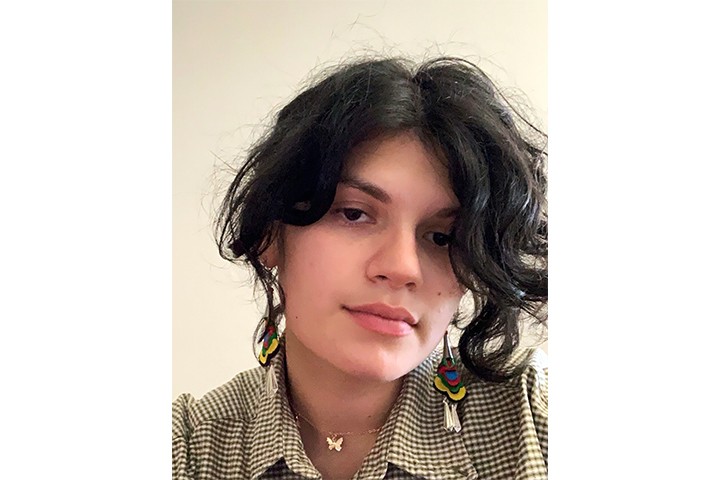2022

The Diversity, inclusion, Access (DIA) Jumpstart Program at USC
Major/Minor: Urban Learning and Education Specialist Credential program
College: Charter College of Education
Anticipated Graduation Year: 2024
Name of the scholarship (and its benefits):
The Diversity, Inclusion, Access (DIA) Jumpstart program at USC gives undergraduate students majoring in STEM, social science, and humanities fields from outside institutions access to research labs and professional development workshops to pave a path toward graduate studies. It is a 10-week-long, hands-on research opportunity where undergraduate students can work alongside PhD students and principal investigators to uncover knowledge.
What are your future career goals?
I want to work in the field of special education in a public middle or high school. I want to support students during transitional life periods. After a few years of teaching, I plan to apply to a master’s program in occupational therapy and follow this with a doctorate in special education. I want to research humanized educational frameworks and supports for individuals on the Autism spectrum that can replace current therapies that have the risk of inflicting long-lasting trauma. My biggest career goal would be opening a school with alternative educational methods that are geared toward neurodivergent students and students with disabilities.
What motivated you to apply and what were some of the challenges?
I read about the opportunity through the NISFEP announcements on canvas. I was motivated to apply for the DIA program since I was recently diagnosed with Autism Spectrum Disorder (ASD) last year. Coming to terms with my identity and needs while being presented with an opportunity to gather knowledge about my community motivated me to become a part of it. The biggest challenge was the interview. It had been the first professional interview I had done where I was completely open about my disability status. The team was incredibly welcoming and validated my efforts to guide Autism research in an authentic and humanized direction.
What advice would you give to future applicants of this scholarship or any scholarship?
I would advise students to be aware of possible imposter syndrome. I took a break from academia for many years and returned during the pandemic. This made me wary at first, as I didn’t feel confident in my knowledge or experience. Once I noticed this was an intrusive thought, I tried my best to regulate and redirect it into motivation to have my unique perspective seen. I strongly recommend future applicants be reflective about their identities and experiences and how their mental health affects their productivity and planning. Lastly, be sure your scholarship or fellowship aligns with you most authentically. You will gain the most knowledge and personal growth that way!
What would people be surprised to know about you?
People are often surprised when I tell them I am Autistic. There are many stereotypes circulating in popular culture and past research. Sadly, diagnostics have been tailored toward the white, upper-middle class, male presentation, leaving many individuals, young and old, to slip through the cracks of public education systems. Luckily, I received my diagnosis last year and I have been learning about different skills and tools that can help me meet my needs.
Any other information you would like to mention or include that wasn’t asked here:
I am a mother of a 4-year-old. I shared a photo of us with The University Times when my comic, featuring him, was published last semester.
Information on The Diversity, Inclusion, Access (DIA) Jumpstart program at USC: https://provost.sma.usc.edu/prog/jumpstart2022/